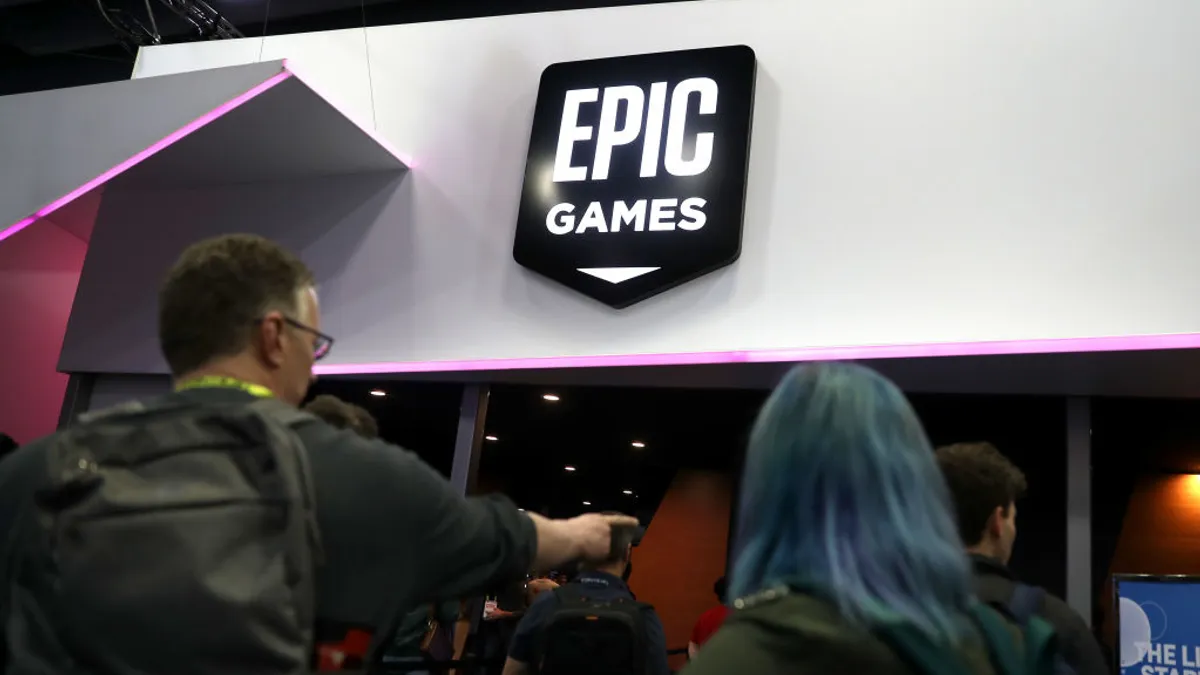Dive Brief:
- A software engineer filed April 27 an unfair labor practice charge against video game developer Epic Games, alleging that the company refused to hire her because of previous involvement in labor organization activities and because she had previously filed charges with the National Labor Relations Board, an NLRB document confirmed.
- The engineer — who previously filed an NLRB charge against Apple alleging that the company’s HR team and leadership “engaged in coercive and suppressive activity” in response to employees’ efforts to gather wage data — also filed a similar unfair labor practice charge in February against internet development firm Mozilla.
- In an email to HR Dive, an Epic Games spokesperson said the engineer was one of two people invited to interview for the position, but the company offered the position to the other candidate, who scored higher during the interview process. The spokesperson also confirmed that it required the engineer to complete a Request for Outside Activities form after it had made the decision. Neither the details of past organizing activities on her website nor her outside activities form factored into Epic Games’ decision, the spokesperson said.
Dive Insight:
So far, 2022 has been a noteworthy year for the U.S. labor movement and the NLRB.
Among its other provisions, Section 8 of the National Labor Relations Act of 1935 prohibits employers from refusing to hire a person because of that person’s participation, or nonparticipation, in union or other group activity within the protection of the act, or because of a person’s having filed charges or given testimony under the act.
In addition to her past NLRB filings, the engineer had been part of the #AppleToo group of Apple employees that published workers’ experiences of discrimination and harassment at the company. She is also a former employee of video game developer Blizzard Entertainment and spoke to The Washington Post about the company’s cultural issues amid news that regulators had sued Blizzard over workplace harassment and discrimination allegations.
Unionization movements earned victories in industries that had previously dodged such efforts in the past, perhaps most notably in the food and beverage and retail spaces. Earlier this year, workers at Buffalo-area Starbucks restaurants voted to form unions, as did store workers at a Manhattan REI store.
Another high-profile union contest continues in Staten Island, where NLRB is still determining the outcome of an election in which more than 2,600 employees at a local Amazon facility voted to form a union. Amazon has challenged the results of the election, and NLRB granted the company’s request for a hearing later this month. Workers voted last month at an Amazon facility in Alabama to reject unionization for a second time, but labor advocates have filed objections to the results, local news outlet Alabama Live reported.
At the federal level, the Biden administration has pursued a pro-labor stance. In February, a presidential task force on worker organizing published a more than 40-page report detailing, in part, recommendations on how stakeholders can increase workers’ awareness of organization and collective bargaining rights as well as anti-union campaigning by employers.













